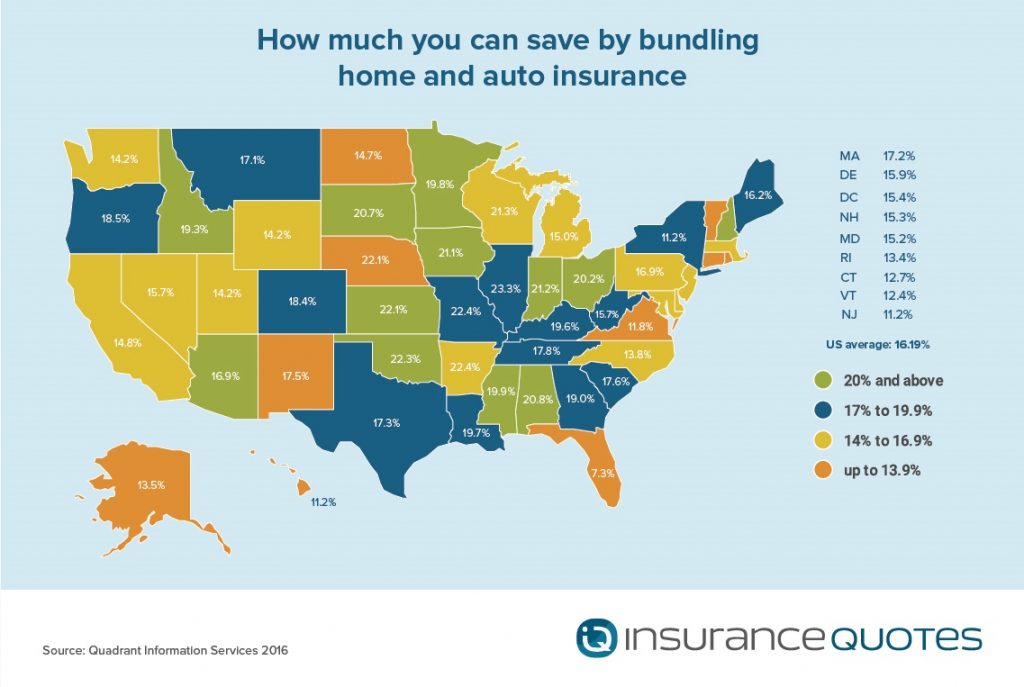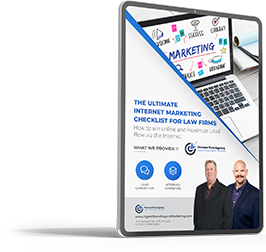Why Settle for a Placeholder When You Can Dominate the Digital Space?
In today’s insurance market, merely having an online presence is not enough. A website provides a platform where professionalism and capability intersect, offering far more strategic advantages than social media alone. It ensures that agents are not just participating but leading in the digital arena, where visibility and accessibility are key to capturing and retaining clients.
Key Takeaways
- Professional Credibility: A website provides a professional image that enhances credibility and trustworthiness in the eyes of potential clients, distinguishing an agent from competitors who may only use social media.
- Meeting Consumer Expectations: Modern consumers expect businesses to have an accessible online presence with comprehensive information. A website meets these expectations and positions the agent as a legitimate, up-to-date professional.
- Enhanced Visibility Through SEO: A website optimized for search engines increases visibility more effectively than social media alone. Local SEO strategies are particularly important for insurance agents, as they help capture the local market by appearing in regional search results.
- Content Marketing: Regular, valuable content published on a website establishes an agent as an authority in the insurance field, attracts potential clients, and improves search engine rankings. This builds long-term relationships and trust with clients.
- Direct Communication via Email Marketing: Websites facilitate the collection of email addresses, enabling direct and personalized communication with clients. This helps in nurturing long-term relationships and improving client retention.
- Optimized Design for Conversion: Strategic web design that includes psychological triggers and clear calls-to-action can significantly increase user engagement and convert visitors into leads or clients.
- Data-Driven Adaptation: Using analytics to monitor visitor behavior and adapt marketing strategies accordingly helps optimize resources and targeting efforts, ensuring that the website meets user needs effectively.
- Centralized Information Hub: A website acts as a central hub for all important business information, which enhances user experience and client satisfaction by making essential details readily available in one place.
- Digital Customer Service Tools: Integrating advanced customer service tools like live chat and AI-driven support on the website provides immediate assistance to clients, enhancing customer service and satisfaction.
- Cost and Technical Considerations: Developing and maintaining a website is an investment that pays dividends in client acquisition and retention. Insurance agents should consider both budgetary constraints and the need for technical expertise in website development and maintenance.
- Compliance and Legal Obligations: Insurance websites must adhere to stringent regulations concerning personal and financial data, making it crucial to partner with experts in web development and compliance.
- Measuring Success and Integrating Marketing Efforts: Effective use of website analytics helps measure the success of a website and should inform integrated marketing strategies across various channels to optimize overall performance.
Credibility as Your Foundation
Professional Image and First Impressions
A professional website acts as your digital handshake, instantly establishing a level of trust and professionalism that social media cannot match. For instance, a sleek, intuitive site that features client testimonials, a comprehensive ‘About Us’ section, and professional achievements conveys solidity and reliability, answering the client’s initial ‘why should I trust you?’ question.
Meeting Modern Consumer Expectations
With 97% of consumers turning to the internet to find local services, a robust website isn’t just preferred—it’s expected. In the insurance business, where decisions are based heavily on trust and credibility, not having a website can significantly hinder your ability to appear as a legitimate and up-to-date professional.
Strategies for Comprehensive Marketing
Leveraging SEO for Greater Visibility
SEO is crucial because it places your business in front of potential clients at the exact moment they are searching for your services. It’s particularly important for insurance agents to target local SEO strategies, which help you rank higher in your specific geographic area—a key factor since many clients prefer local providers for their insurance needs.
The Power of Content Marketing
Effective content marketing addresses client questions, concerns, and interests, thereby drawing them into your website. It’s about creating value that elevates your authority and trustworthiness in the insurance field. For example, a detailed article explaining the nuances of homeowners insurance after a natural disaster can attract homeowners looking for guidance, thereby increasing your visibility as an expert.
Email Marketing: A Direct Line to Your Clients
Email marketing allows for personalized communication that nurtures client relationships over time, making it essential in the insurance sector where client retention is as vital as acquisition. Regular newsletters that provide timely advice or updates about policy changes keep your clients engaged and reinforce their decision to choose your services.
Optimizing Lead Capture and Conversion
Design That Converts
Strategically designed websites guide visitors toward actions that convert them into leads or clients. Effective web design incorporates psychological triggers such as trust signals, clear navigation, and prominent calls-to-action that compel visitors to
engage further—be it through filling out a contact form, downloading a resource, or requesting a consultation. This design approach answers the ‘why’ by making the user’s path to engagement as intuitive and frictionless as possible, which is essential in converting interest into actionable leads.
Adaptive Strategies Through Analytics
Adapting marketing strategies based on website analytics is critical in the insurance industry because it allows for the optimization of resources and targeting efforts. For example, if data shows that visitors frequently exit the site from the quote request page, it might indicate a need for simplification or additional trust-building elements on that page. Understanding these patterns enables you to tailor your strategies to meet actual user needs and preferences, enhancing effectiveness and efficiency.
Your Website as a Client Interaction Hub
Centralizing Critical Information
A centralized hub for information not only enhances user experience by making it easier for clients to find what they need but also reduces the time and effort required for client support. This is especially important in the insurance sector, where access to policy details, claim forms, and contact options in one place can significantly influence client satisfaction and loyalty.
Enhancing Customer Service with Digital Tools
Integrating advanced digital tools such as AI-driven chatbots, real-time support, and automated customer service portals directly on your website provides immediate, around-the-clock assistance to clients. This immediate access is crucial in the insurance industry, where client concerns often require urgent responses. Enhanced digital customer service tools ensure that clients feel supported and valued at all times, thereby improving overall customer satisfaction and retention.
Addressing Additional Key Questions
Cost and Investment Considerations
The investment in a website should be viewed not just as a cost but as a strategic asset. Initial development might require a significant outlay, but the return in terms of client acquisition and retention often justifies the expense. For those worried about high initial costs, options like templated website services provide a lower-cost alternative, though with less customization.
Technical and Compliance Considerations
While the technical skills required to launch and maintain a website can vary, most insurance agents will benefit from partnering with web development experts who can navigate the complexities of online compliance issues—especially important given the stringent regulations governing personal and financial data in the insurance industry.
Measuring Success and Integration with Other Marketing Efforts
Effective measurement and integration involve looking at website performance data to inform broader marketing strategies. For instance, understanding which website pages drive the most conversions can help shape the content strategy on social media or determine the focus of PPC advertising campaigns.
Conclusion: Your Website, Your Business’s Most Valuable Player
Investing in a comprehensive, professionally managed website is more crucial than ever for insurance agents aiming to excel in a competitive market. Such a website not only enhances your professional image and marketing efficiency but also serves as the cornerstone of your client interaction and retention strategy. By embracing the strategies outlined, you can ensure your digital presence not only meets but exceeds the expectations of today’s insurance clients, securing your place as a leader in the industry.
FAQs (Frequently Asked Questions)
Why is a website important for insurance agents?
A website establishes a professional image, enhances credibility, and meets the expectations of modern consumers who prefer to access information online. It serves as a central hub for all business activities and information, making it easier for potential clients to find and engage with your services.
How does a website improve visibility for insurance agents?
A website optimized with SEO (Search Engine Optimization) strategies increases visibility by appearing in search engine results. This is particularly effective with local SEO, which targets potential clients within the same geographical area as the agent, making the business more relevant and accessible.
What kind of content should insurance agents post on their websites?
Insurance agents should focus on creating informative and engaging content that addresses the needs and questions of their potential clients. This can include blog posts about insurance policies, advice on choosing the right coverage, updates on insurance laws, and helpful guides on claim processes.
How does email marketing integrate with a website?
A website can be used to collect email addresses through newsletter sign-ups, contact forms, and other interactions. These email lists allow for direct and personalized communication with clients and prospects, helping to build lasting relationships and improve retention.
What are the key elements of web design that help convert visitors into clients?
Key elements include clear and compelling calls to action, intuitive navigation, responsive design for mobile and tablet users, and interactive tools like quote calculators or assessment forms. These elements encourage visitors to engage more deeply with the website, leading to higher conversion rates.
Why is it important to use analytics on a website?
Analytics provide insights into how visitors interact with the website, such as which pages they visit, how long they stay, and what content they engage with. This data helps insurance agents understand visitor behavior and preferences, allowing them to make informed decisions on how to improve the website and optimize marketing strategies.
What technical skills are required to manage an insurance agent’s website?
Basic skills may include content management, understanding of SEO principles, and some knowledge of website analytics. However, for more complex site functionality or compliance with legal regulations, it may be beneficial to hire a professional web developer or a digital marketing agency.
How can insurance agents ensure their websites comply with legal regulations?
Insurance agents should consult with legal experts or digital compliance specialists to ensure their websites adhere to all relevant regulations, including those related to data protection, privacy laws, and online advertising. Regular audits and updates may be necessary to maintain compliance as laws change.
This article is a collaboration between Carl Willis and OpenAI’s ChatGPT. Created on May 3, 2024, it combines AI-generated draft material with Willis’s expert revision and oversight, ensuring accuracy and relevance while addressing any AI limitations.






